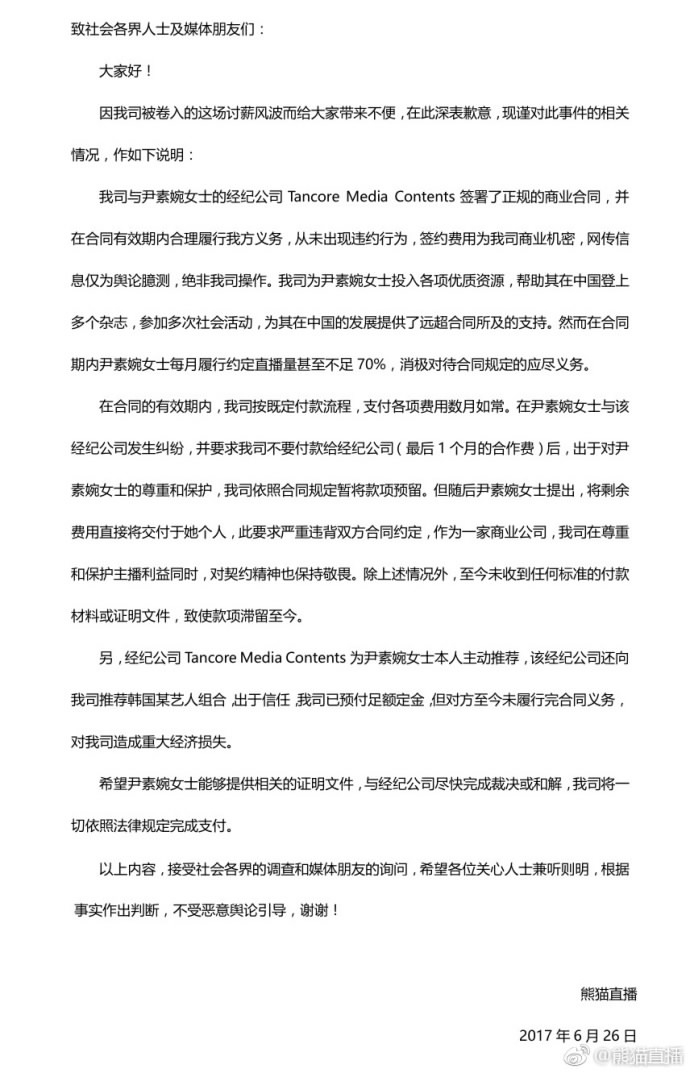
China
12:32, 27-Jun-2017
'Unpleasant matters': South Korean online star ditches Panda TV

Top South Korean live stream host Yoon Sso Won has left online streaming site Panda TV due to “unpleasant matters”.

Screenshot of Yoon Sso Won's open letter from Weibo
Screenshot of Yoon Sso Won's open letter from Weibo
In a statement published on her Weibo account, Yoon said the company did not pay her despite exclusively providing content to the platform as per the terms of her contract.
At the same time, Panda TV also allegedly failed to give her gifts from fans which could be converted into money.
Yoon said she is considering setting up a contract consultancy fund if she receives payment from Panda TV to help online celebrities facing legal issues.

Panda TV founder Wang Sicong (L) and Yoon Sso Won at ChinaJoy in Shanghai on July 28, 2016. /CFP Photo
Panda TV founder Wang Sicong (L) and Yoon Sso Won at ChinaJoy in Shanghai on July 28, 2016. /CFP Photo
Panda TV denied breaching the contract with Yoon and claimed she had only provided less than 70 percent of the agreed number of shows.
Panda TV said it had withheld expenses as Yoon was in the middle of a dispute with her agent and had asked Panda not to pay them.
Yoon later allegedly asked Panda TV to circumvent her agent and transfer payments directly to her, in violation of the terms of her contract.

Statement from Panda TV Weibo
Statement from Panda TV Weibo
Panda TV, an online entertainment company, is founded by Wang Sicong, the son of China's richest man, Dalian Wanda Group chairman Wang Jianlin.
Wang, an outspoken and popular social media celebrity, has invested in dozens of companies and owns a number of listed companies, ranging from e-gaming to private equity.
China’s live-streaming industry has been booming in recent years. It more than doubled in size last year, generating revenue of around three billion US dollars, according to investment bank Credit Suisse.
Even though Chinese regulators have been cracking down on illegal online content, there are still loopholes in terms of the protection of broadcasters’ rights.

SITEMAP
Copyright © 2018 CGTN. Beijing ICP prepared NO.16065310-3
Copyright © 2018 CGTN. Beijing ICP prepared NO.16065310-3